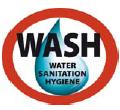/topics/government-programmes
Government Programmes
Ahar pynes, traditional flood water harvesting systems can help revive agriculture in south Bihar
Posted on 26 Jan, 2013 07:48 PMAhar pynes are traditional floodwater harvesting systems indigenous to South Bihar [1], and have been the most important source of irrigation in this region. Ahars are reservoirs with embankments on three sides and are built at the end of drainage lines such as rivulets or artificial works like pynes. Pynes are diversion channels led off from the river for irrigation purposes and for impounding water in the ahars. It is mostly to the credit of these that paddy cultivation has been possible in this otherwise relatively low rainfall area, when compared to North Bihar. The system attained its highest development in the district of Gaya [2].
This article provides an account of the ahar-pyne systems of South Bihar and the need to build organizational and institutional capacities of civil society and government agencies to undertake ahar pyne renovation and management.

Water: Towards a paradigm shift in the Twelfth Plan - A paper by Mihir Shah in the EPW
Posted on 22 Jan, 2013 10:37 AMA fundamental change in the principles, approach and strategies of water management in India has been proposed in the Twelfth Plan
Why is this paradigm shift needed ?
"Launch research initiative to mainstream groundwater into urban water supply" - Arghyam’s inputs to the 2013-14 pre-budget consultation of the Finance Minister with social sector groups
Posted on 21 Jan, 2013 05:54 PMThese were the inputs given by Rohini Nilekani, Chairperson, Arghyam, to the Finance Minister at the pre-budget consultation event that took place on 4th January, 2013.
Traditional diversion-based phad irrigation systems help mitigate risk of crop failure in the drought-prone farmer suicide belt of Vidarbha, Maharashtra
Posted on 11 Jan, 2013 11:56 AMMany of these systems (1) continue to function and are often more sustainable, cost-effective and successfully managed by local institutions. Phads are one such community-based and managed diversion irrigation management system (2) prevailing in the north-western part of Maharashtra and date back to the early 16th century as per historical accounts. The system is prevalent in the Tapi basin on rivers the Panjhra, Mosam and Aram in Dhule and Nashik districts (3).
Phads or diversion-based irrigation systems, are being revived and promoted in Vidarbha region of Maharashtra by Dilasa, a Yavatmal-based voluntary development organisation (Video courtesy: Dilasa)
Report on Greening of the NRDWP: News and Policy Update from India WASH Forum e-Newsletter-Dec 2012
Posted on 11 Jan, 2013 07:44 AM Gender in WASH: Misplaced perspective in WASH sector
Gender in WASH: Misplaced perspective in WASH sector
Punjab chief minister objects to draft national water policy - Roundup of the week's news (December 31 – January 6, 2013)
Posted on 08 Jan, 2013 08:03 AMObjection raised to National water Policy
National water policy views water as an economic good: Resistance shown by civil society with the move towards increasing the water and sewerage tariff- Bimonthly newsletter by India WASH Forum
Posted on 04 Jan, 2013 10:24 PM
This edition of the India WASH Forum has the following highlights:
An analysis of 2011 census data on household amenities with respect to drinking water sources and latrine facilities in urban areas of the country- A document by CPHEEO, Ministry of Urban Development
Posted on 04 Jan, 2013 07:27 PMThis document by Central Public Health and Environmental Engineering Organisation , Ministry of Urban Development, is an analysis of 2011 census data on of the drinking water and latrine facilities in urban areas of the country.
Workshop on evaluating the JNNURM and preparing for the future, Transparent Chennai, Chennai, December 2, 2012
Posted on 26 Nov, 2012 03:46 PMOrganizers






